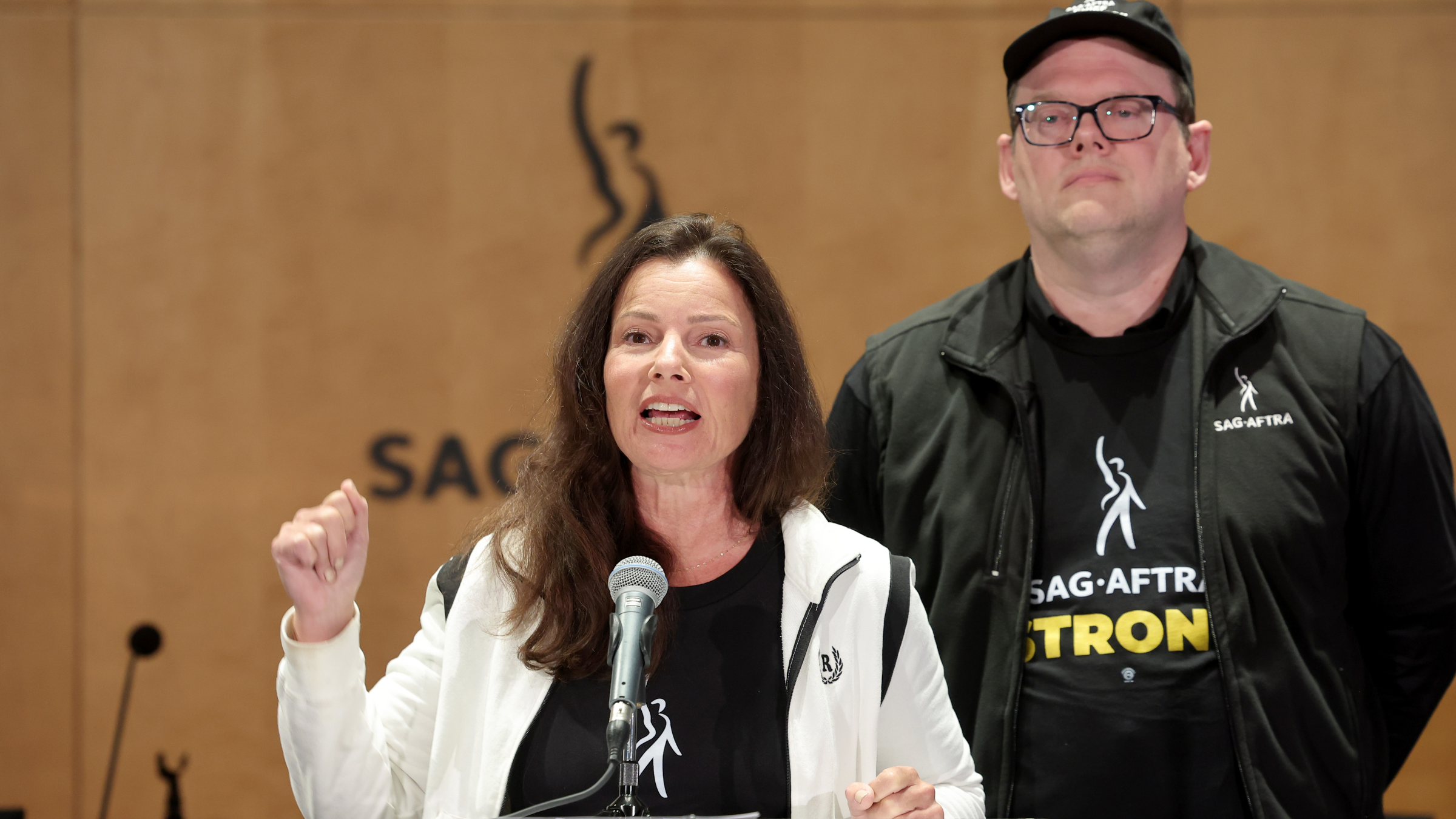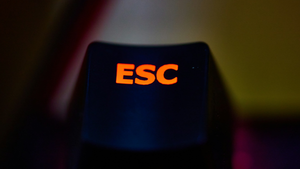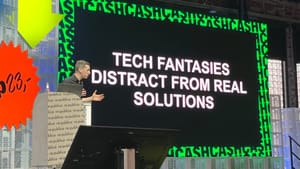
For the first time in 63 years, Hollywood actors and writers are on strike together as they see an unprecedented threat to the future of their professions. Increasingly consolidated studios and streaming companies have used their power to deploy new technologies that have upended the business model of Hollywood, and disempowered the labor that creates film and television. This isn’t just about streaming or AI, but how the digital transition has been structured by corporate players to increase their power over the industry at everyone’s expense.
In a fiery speech yesterday announcing that SAG-AFTRA, the actors’ union, would be going on strike, national president Fran Drescher put the blame squarely on the studios. “We are being victimized by a very greedy entity. I am shocked by the way the people we have been in business with are treating us,” she said. “How they plead poverty, that they’re losing money left and right while giving millions to CEOs. It’s disgusting, shame on them.”
But Drescher also specifically pointed to how technology was being used against actors and other workers in the industry. “The entire business model has been changed by streaming, digital, AI,” she told reporters. In a later interview with The Hollywood Reporter, she expanded on those points. “Human beings in all different walks of life are being replaced by robots. And what happens here, the eyes of the world and certainly labor in this country is looking at. It’s really important that we put barricades around artificial intelligence, because it’s going to put people out of work.”
“The digital age is cannibalizing us,” Drescher declared.
After a couple months of the writers strike, people are probably familiar with some of the issues. In the shift to streaming, companies transformed the compensation structure of the industry that has resulted in lower pay virtually across the board for writers, actors, and other film and television workers — with the occasional exception of the biggest names in Hollywood. A recent story in The New Yorker laid out how this works, as actors from the Netflix hit series Orange Is The New Black opened up about how little they were paid, and how that compares to sitcoms under the old model of broadcast and cable.
The writer’s strike is all about tech
When it comes to artificial intelligence, actors have a distinct concern about how their performances could be digitally replicated, denying work to human actors. In the press conference, chief negotiator Duncan Crabtree-Ireland revealed the studios had proposed that “our background performers should be able to be scanned, get one day’s pay, and their companies should own that scan, their image, their likeness and should be able to use it for the rest of eternity on any project they want, with no consent and no compensation.” It was a non-starter for the union.
We’ve already seen this at Disney, as they’ve been digitally replicating dead actors or recreating younger versions of actors for characters like Luke Skywalker, but people in the industry responded to the story on Twitter to say the scanning of other actors is already happening. While A-list performers may have leverage to negotiate these things, newer actors will not, which is why contract rules are so important. Keanu Reeves, for example, reportedly has a contract clause saying his performances cannot be digitally altered without his permission, otherwise you “lose your agency,” he explained.
One point that sticks with me is something I discussed with LA Times reporter Anousha Sakoui earlier this year. When most people think of Hollywood, they think of the A-list actors and big-name directors, but the reality is that most people working in the industry are not pulling in millions of dollars. They get paid far less, and have very little job security — which has only gotten worse in the streaming era. These strikes are about fighting for them, and making sure it’s still possible for new people to get into the profession and have a stable career.
There was recently some media chatter that the resolve of striking writers may have been waning, but if that was even true, it’s sure not to be the case any longer. Not only are those 11,500 writers about to be joined by 160,000 actors — many of whom have already been turning out to picket lines to show their support — but a spate of recent comments by studio executives has reinvigorated them. Anonymous studio executives told Deadline the goal was to “break the WGA” by allowing things to “drag on until union members start losing their apartments and losing their houses.” Disney CEO Bob Iger, who is estimated to earn at least $27 million a year, said the actors’ and writers’ demands were “just not realistic.”
The core issue here is not just how corporate power is fighting to disempower labor, but how it’s using new technologies to do it: visual effects to replace physical work, streaming services to upend the business model, and AI to further deskill the work of writers and performers. Last month, I outlined the longer history of this since the blockbuster boom of the 1980s and the adoption of digital technology at the turn of the millennium.
How Hollywood used the digital transition against workers
The digital transition hasn’t been primarily about efficiency or cost-savings in Hollywood, but about further shifting power from labor to corporate executives. The strike by actors and writers isn’t just about getting a little bit more from profitable entertainment and streaming companies, but to fight back against the ongoing effort to turn their professions into yet another gig economy where few workers have any stability and the corporate overlords have all the leverage.
Solidarity with actors and writers! Their victory is essential not just to protect workers in their industry, but also to halt a further degradation in the quality of film and television by multinational companies that only care about the bottom line.





Member discussion